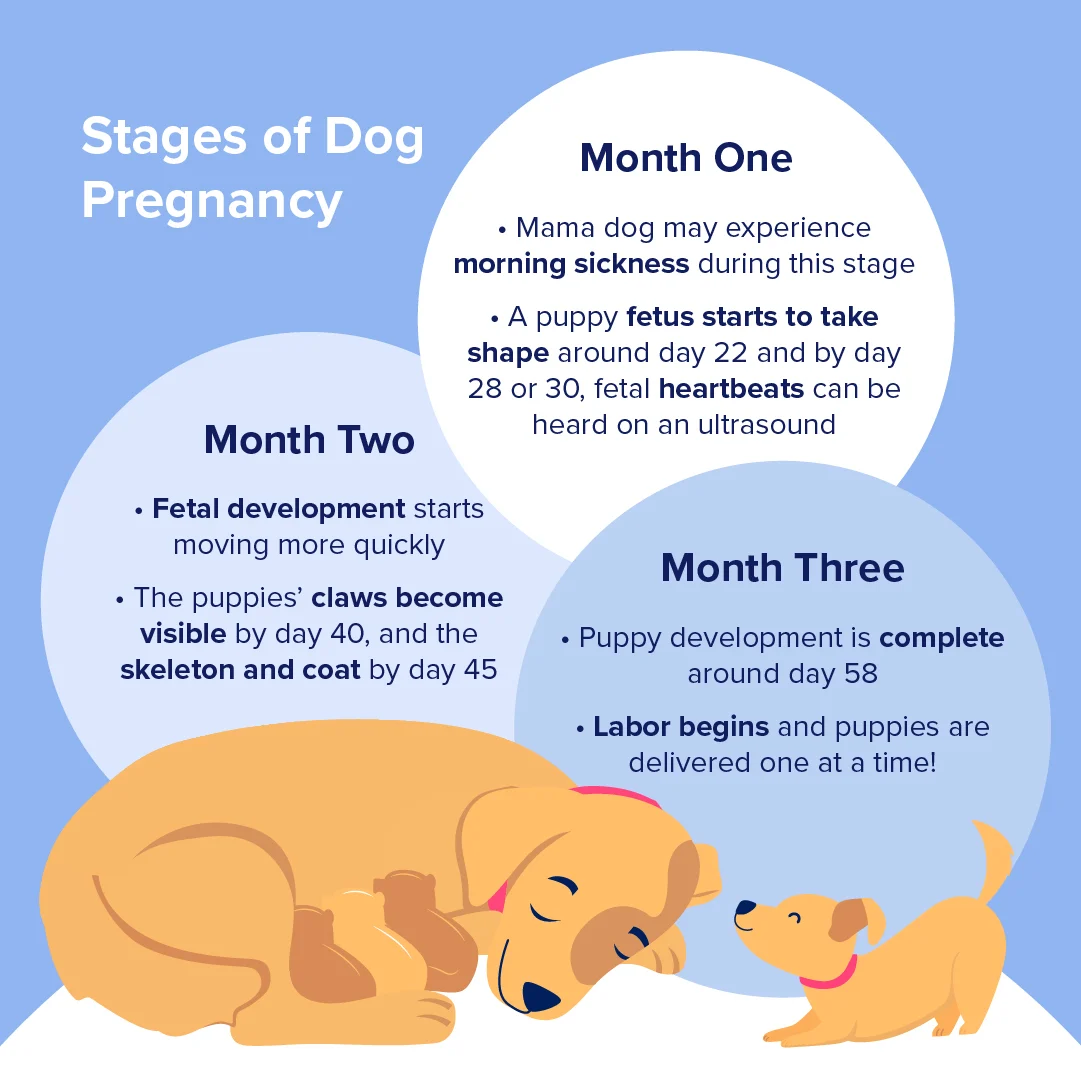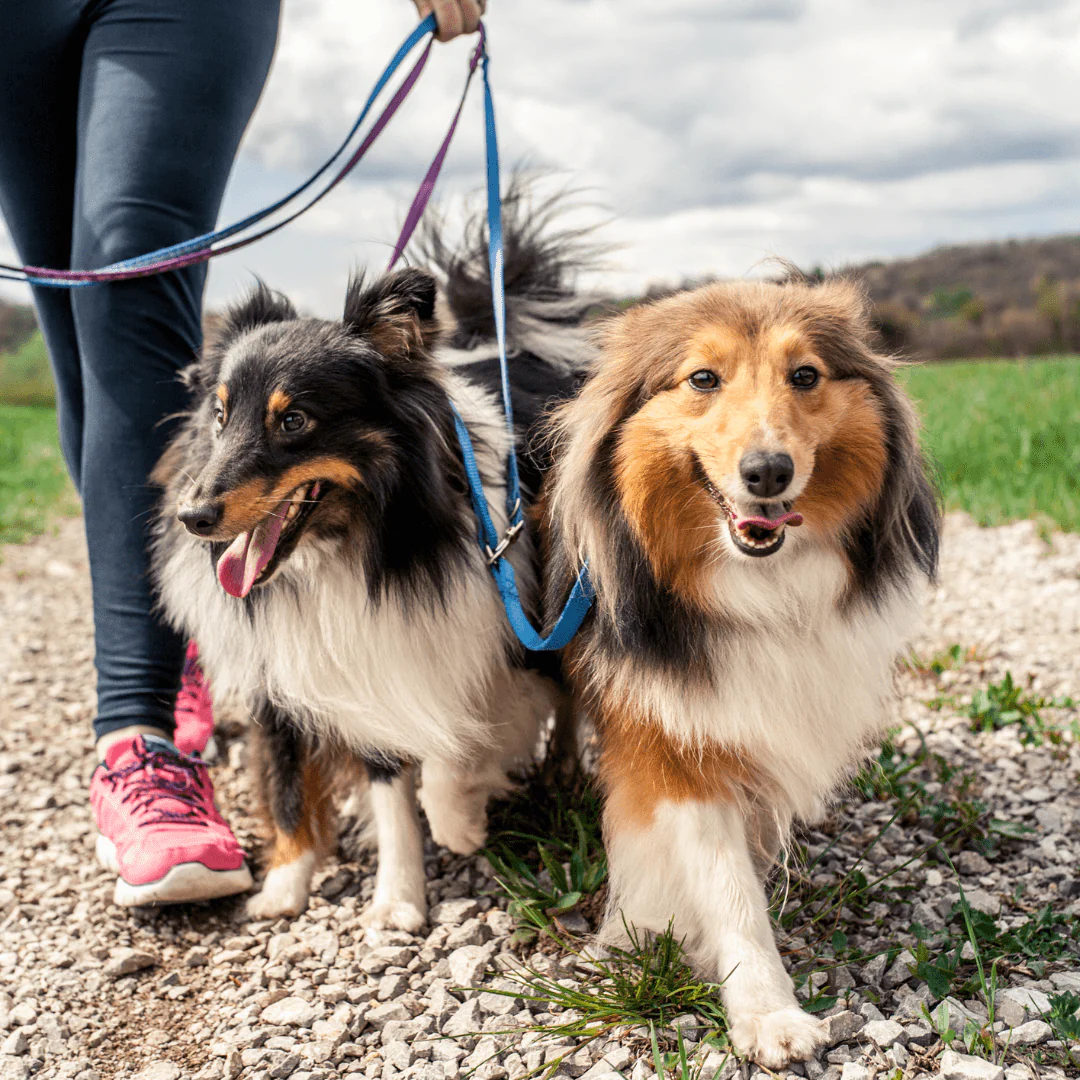Caring for a pregnant dog is a special responsibility that comes with unique challenges and rewards. Just like with human pregnancies, the health and well-being of both the mother and her puppies are of paramount importance. From the moment you suspect your dog may be pregnant, ensuring she receives the right care, nutrition, and attention becomes a priority. This comprehensive guide will walk you through everything you need to know to support your pregnant dog during this exciting time, from recognizing the signs of pregnancy to helping her through labor and beyond.
Recognizing the Signs of Pregnancy in Dogs
The journey of caring for a pregnant dog begins with recognizing the early signs of pregnancy. Often, the first noticeable signs are behavioral changes. Your dog may become more affectionate or, conversely, more withdrawn. Additionally, you might notice subtle physical changes, such as a slight increase in appetite or a slight drop in energy levels. These early signs are not definitive, but they are a reason to take your dog to the vet for a more accurate diagnosis. A veterinarian can confirm pregnancy through palpation or ultrasound, which is the best way to ensure your dog is indeed expecting and to monitor the progress of the pregnancy.

As the pregnancy progresses, the physical changes in your dog will become more evident. Her abdomen will gradually enlarge, and her nipples will darken and swell in preparation for nursing. These are sure signs that the pregnancy is advancing, and at this point, it’s crucial to adjust her care routine to meet her growing needs.
Meeting the Nutritional Needs of a Pregnant Dog
Once pregnancy is confirmed, one of the most important aspects of care is ensuring that your dog is receiving proper nutrition. A pregnant dog requires a diet rich in essential nutrients to support the development of her puppies. Her caloric needs will increase, but it’s important to avoid overfeeding, as obesity can lead to complications during delivery. You should gradually increase her food portions and provide high-quality, veterinarian-recommended dog food that contains the right balance of proteins, fats, vitamins, and minerals.
As your dog approaches the later stages of pregnancy, her appetite may fluctuate due to the growing puppies pressing on her stomach, reducing her ability to eat large meals. In this case, smaller, more frequent meals can help ensure she gets the nutrition she needs without feeling overly full. Keeping her at a healthy weight throughout the pregnancy will help her have an easier delivery and recover faster postpartum. The balance between meeting her nutritional needs and preventing excessive weight gain is critical in ensuring both her health and the health of her unborn puppies.
Safe Exercise During Pregnancy
Maintaining a healthy weight during pregnancy isn’t just about proper nutrition; it also involves keeping your dog active with appropriate exercise. While pregnant dogs don’t need intense physical activity, moderate exercise is still beneficial to keep their muscles toned and their body fit for labor. Gentle walks and light play sessions are ideal forms of exercise that will allow your dog to stay active without overexerting herself.

As the pregnancy progresses and your dog’s body changes, you may notice she becomes less interested in strenuous activities. It’s important to respect her limits and gradually reduce the intensity of exercise. In the final stages of pregnancy, short, slow-paced walks are usually sufficient to keep her healthy. Exercise is also a great way to mentally stimulate your dog and maintain her mood during pregnancy. However, always watch for signs of exhaustion, such as heavy panting or reluctance to continue, and consult your vet if you’re unsure about her exercise routine.
Ensuring Proper Veterinary Care
Throughout your dog’s pregnancy, regular veterinary visits are essential to monitor her health and the progress of her puppies. Your veterinarian will schedule regular checkups to ensure that everything is proceeding as expected and can provide advice on any adjustments you may need to make in her care routine. During these visits, your vet will also discuss vaccinations and parasite prevention, as both are crucial to keeping your dog and her puppies safe.
It’s also important to stay vigilant for any signs of complications. Pregnant dogs are at risk for conditions like eclampsia, infections, or premature labor. If you notice unusual symptoms, such as a loss of appetite, excessive discharge, or lethargy, it’s important to contact your vet immediately. By staying proactive about veterinary care, you can catch potential issues early and keep your dog healthy throughout her pregnancy.
Preparing for the Birth (Whelping)
As your dog approaches the final weeks of her pregnancy, it’s time to prepare for the birth. Creating a comfortable and quiet space for whelping is essential. This area should be away from the hustle and bustle of the house, giving your dog the privacy she needs. A whelping box lined with soft bedding is an ideal setup, as it gives her a clean and safe space to deliver her puppies.
In the days leading up to the birth, you may notice signs that your dog is getting ready for labor. She may start nesting, or her body temperature may drop slightly—a common sign that labor is 24 hours away. Keep a close eye on her behavior and make sure you have whelping supplies on hand, such as towels, gloves, and a vet’s contact information in case complications arise during delivery.
Knowing when to call the vet during labor is crucial. While many dogs can give birth without assistance, there are instances where medical intervention is necessary. If your dog is in distress or struggling to deliver a puppy, don’t hesitate to seek professional help.
Caring for Your Dog After Delivery
Once the puppies are born, the postpartum period is just as important as the pregnancy itself. Immediately after delivery, check to ensure that the mother is comfortable and that all the puppies are nursing properly. Clean her gently if needed and make sure she has a quiet, comfortable space to rest.
It’s important to keep an eye out for any signs of postpartum complications, such as infections or difficulty in producing milk. If you notice any unusual symptoms in the mother, such as excessive panting, restlessness, or a lack of interest in her puppies, contact your vet right away. Proper nutrition continues to be important during this time, as the mother needs extra calories and hydration to support milk production.
Ensuring the Health of the Newborn Puppies
The health of the puppies is closely tied to the care of their mother. Puppies should be nursing regularly and gaining weight consistently. Watch for signs of any puppies that may be struggling, such as those that are not feeding as often or seem lethargic. In such cases, you may need to assist with feeding or consult your veterinarian for advice.
As the puppies grow, you’ll also need to begin preparing for their weaning process, which typically starts around four to six weeks. Introducing puppy food gradually, while allowing them to continue nursing, will help them transition smoothly into their next stage of development.
Caring for a pregnant dog requires attention to detail, proper nutrition, exercise, and consistent veterinary care. By recognizing the signs of pregnancy early and adjusting your care routine to meet her needs, you can ensure that both the mother and her puppies remain healthy. Preparing for the birth and providing postpartum care are just as crucial as the care during pregnancy. With the right support, you can help your dog deliver a healthy litter and enjoy the experience of raising her puppies. Looking ahead, the journey of raising newborn puppies and caring for their mother will continue to be an exciting and fulfilling experience for both you and your dog.

After 5 years in a high pace business management role, I partnered with an e-commerce developer to start building Dog Supplies Warehouse.
Our number one goal is to make sure all products are managed and delivered to our customers door fast and accurately.

